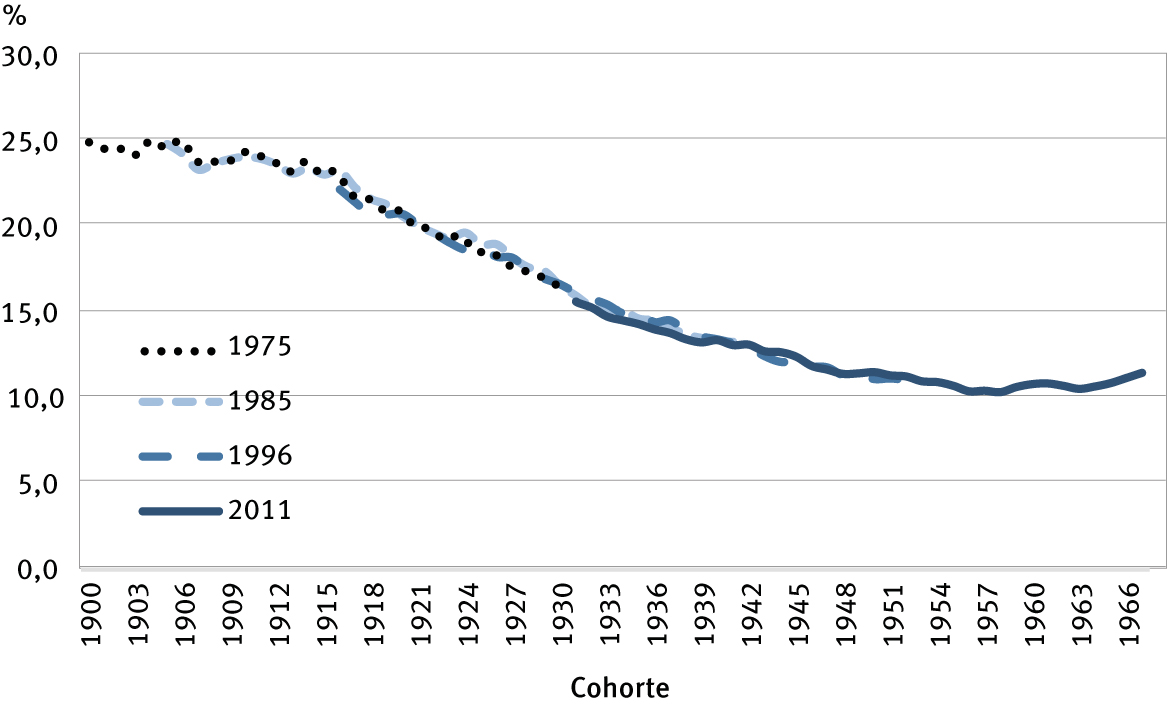Abstract
This paper aims to analyze Uruguayan women who end their reproductive life span without having children. In addition to quantifying the phenomenon, it seeks to answer the following questions: Which are their main socioeconomic traits? What are the typical trajectories that lead to childlessness? To what extent is it the outcome of unsatisfied reproductive aspirations and to what extent of the will to not have any children? We use a mixed methods approach integrating quantitative and qualitative data. Our results show that the proportion of childless women dropped from approximately 25% to 10% among those born in 1900-1960, and that the most recent data show an incipient increase. In addition, there is a higher proportion of childless women among those with a high level of education. Finally, our typology of trajectories towards definitive childlessness confirms the diversity of paths and traits: although trajectories guided by the intention of not having children were identified, a significant number of women reach childlessness as an unintended consequence of the postponement of motherhood.
Key words
Fertility; Childlessness; Uruguay

 Thumbnail
Thumbnail
 Thumbnail
Thumbnail
 Thumbnail
Thumbnail
 Thumbnail
Thumbnail
 Fuente: Censos de población de 1975, 1985, 1996 y 2011. Se suavizaron las curvas en uno de los censos aplicando medias móviles trianuales.
Fuente: Censos de población de 1975, 1985, 1996 y 2011. Se suavizaron las curvas en uno de los censos aplicando medias móviles trianuales.
 Fuente: Elaboración propia a partir de microdatos censales.
Fuente: Elaboración propia a partir de microdatos censales.
 Fuente: Elaboración propia a partir de microdatos censales.
Fuente: Elaboración propia a partir de microdatos censales.
 Fuente: Elaboración propia a partir de datos de Encor de 2015.
Fuente: Elaboración propia a partir de datos de Encor de 2015.